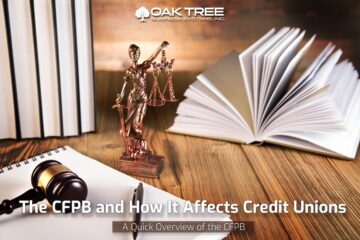
There is one thing that a credit union must always think about, compliance. When you are not in compliance with many laws or regulations it can lead to fines, and this can be problematic. Here are some things to think about with how to avoid fines at your credit union.
The Fair Credit Reporting Act (FCRA)
The Fair Credit Reporting Act (FCRA) is a federal law that protects consumers’ rights to access and correct their credit reports. The FCRA also regulates how credit reporting agencies (CRAs) collect, use, and share consumer information.
Credit Unions and the FCRA
Credit unions are required to comply with the FCRA just like any other financial institution. This means that credit unions must:
- Obtain a consumer’s consent before obtaining a credit report.
- Provide consumers with a copy of their credit report upon request.
- Correct any inaccurate information in a consumer’s credit report.
- Not use a consumer’s credit report for discriminatory purposes.
Fines for FCRA Violations
The Federal Trade Commission (FTC) enforces the FCRA. The FTC can impose fines on credit unions for violating the FCRA. The amount of the fine can be up to $3 million for each violation.
How to Avoid FCRA Violations
There are a number of things that credit unions can do to avoid FCRA violations. These include:
- Obtaining a consumer’s consent before obtaining a credit report.
- Providing consumers with a copy of their credit report upon request.
- Correcting any inaccurate information in a consumer’s credit report.
- Not using a consumer’s credit report for discriminatory purposes.
Forms and Documents
Credit unions should carefully review all of their forms and documents to make sure that they comply with the FCRA. This includes forms that are used to obtain a consumer’s consent to obtain a credit report, forms that are used to provide a consumer with a copy of their credit report, and forms that are used to correct inaccurate information in a consumer’s credit report.
Conclusion
The FCRA is a complex law, but it is important for credit unions to understand their obligations under the law. By taking the necessary steps to comply with the FCRA, credit unions can avoid being fined by the FTC.
Here are some additional tips for credit unions to avoid FCRA violations:
- Train employees on the FCRA.
- Have a process in place for handling consumer complaints.
- Monitor your credit reports for errors.
- Respond promptly to any errors that you find.
By following these tips, credit unions can help to ensure that they are in compliance with the FCRA and avoid being fined by the FTC. If you want to keep your credit union in compliance with regard to the forms and documents you use, remember Oak Tree has the best forms on the market for your credit union.


